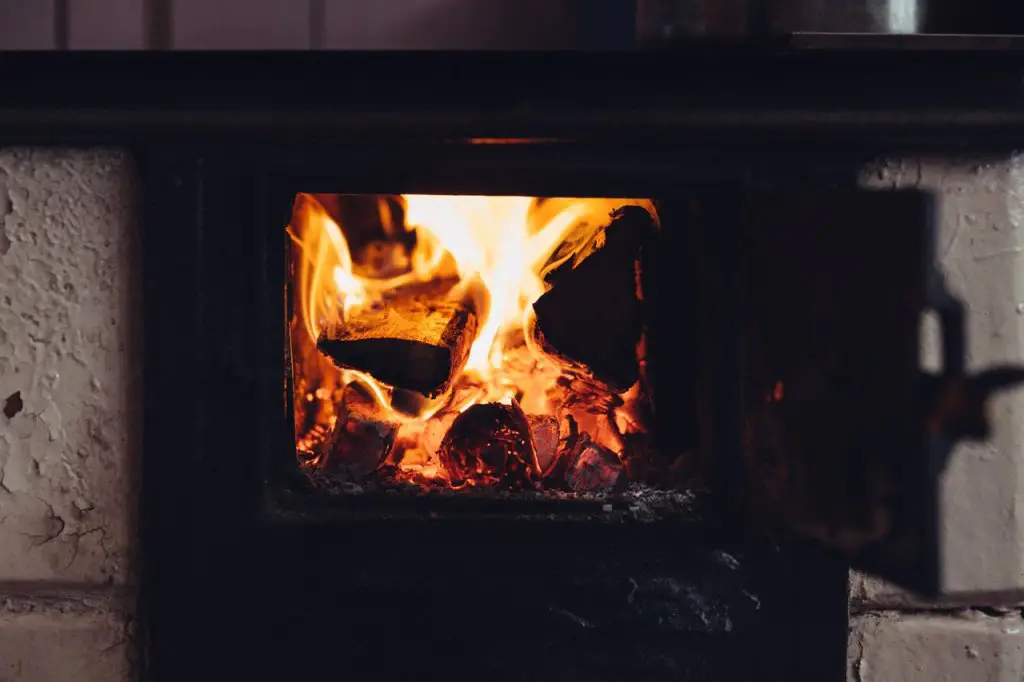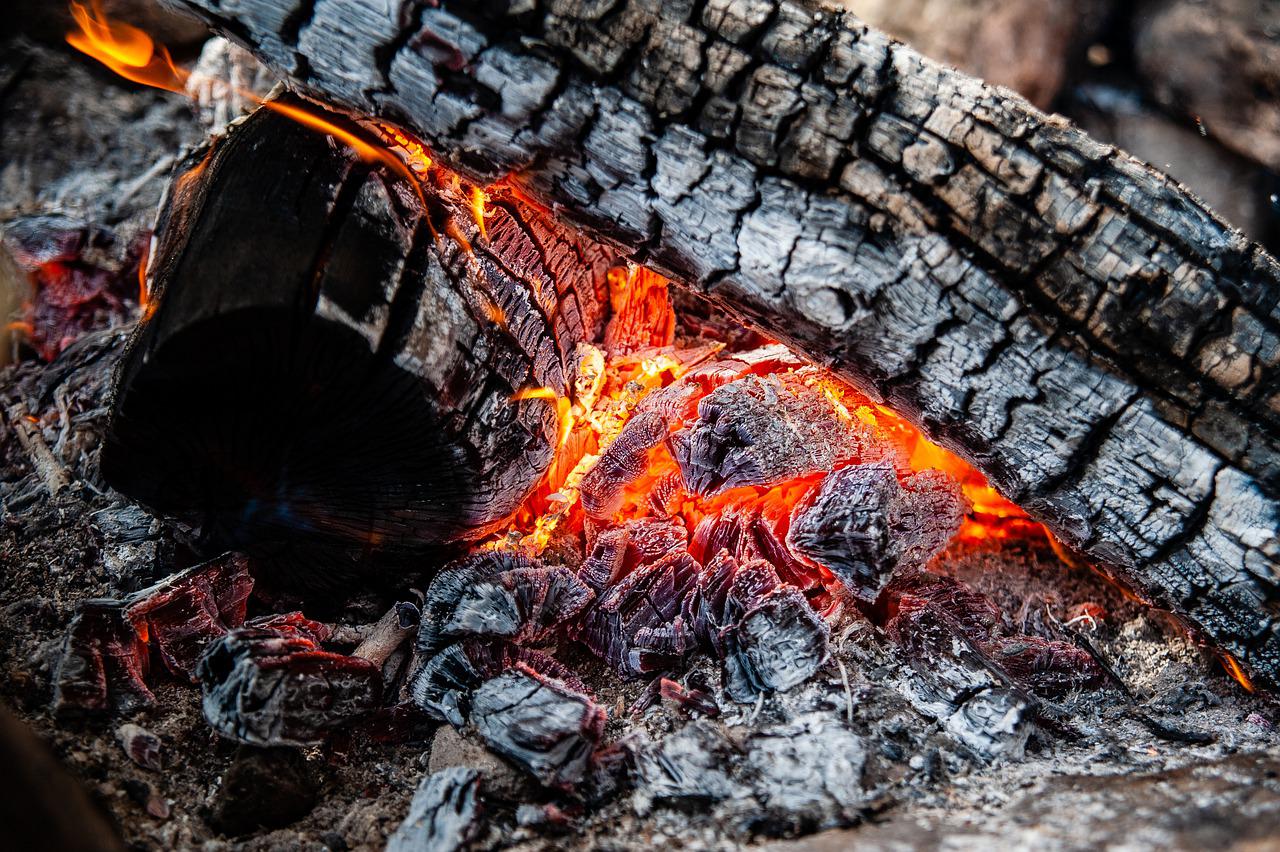Ash, including wood ashes, is an excellent addition to your compost pile, a natural and organic way to reduce the acidity of the compost. It is a carbon-rich material (brown material), high in alkaline and calcium.
Table of Contents
Is It Okay To Use Ashes In Compost?
Yes, it is okay to use ash in the compost.
Use:
- wood fire ash
- bonfire ash
- fireplace ash
- paper or cardboard ashes
- grass burning ashes
Avoid:
- Ashes from synthetic materials
- Ashes from plastic
- Coal ashes
- Charcoal BBQ ashes
- Cigarette ashes
- Treated wood ashes
- Upholstery/household waste ashes
Ashes are a good additive that helps maintain the PH balance in the compost and adds nutrients to the garden soil. Besides, ashes have high potassium content helping the compost be more versatile for soil amendment.
Ash is considered to be brown material. To create nutrient-rich compost, you must mix ashes with other ingredients such as more carbon and green material.
Since ashes are alkaline, check or test the alkalinity of the soil before adding more ashes to your compost. If the soil is too acidic, it will need more ashes. However, adding ash to alkaline soil may only destroy it.
Can I Also Compost Wood Ashes?
Wood ashes are good for compost because they are rich in nitrogen and potassium, essential nutrients for plant growth. These nutrients are also necessary for organic matter decomposition and contribute to good soil structure and aeration.
The high level of organic material makes it suitable for mulching in gardens and landscaping projects. In addition, the components available in wood ash, such as calcium, potassium, and magnesium salts, enable it to be used as a fertilizer.
Younger woods like the twiggy pruning have higher nutrient concentrations than the old ones. Ashes from hardwoods such as maple, oak, and beech woods also have higher nutrients than those from softwoods.
Remember that wood ashes do not contain nitrogen. Since it does not have nitrogen, it cannot be a complete fertilizer on its own; that’s why you should also add other carbon materials to your compost pile.

When Not To Use Wood Ash
Some plants that thrive in acidic soil may fail when you add wood ash and increase the alkalinity of the soil. Such plants include raspberries and blueberries.
Also, avoid using it on the soil where you grow potatoes. Alkaline soil may encourage potato scabs. Wood ash is also not good for seedlings.
To be safe, always do a soil test to know the soil PH level before adding wood ash into the soil.
What to Know Before Using Wood Ash In Your Compost
- Wood ash is acidic; therefore, wear your mask before handling it to avoid breathing the dust. Also, protect your eyes and skin by wearing eye protection, gloves, and long-sleeved clothes.
- Do not mix wood ash with nitrogen fertilizers such as urea, ammonium sulfate, or nitrate. The fertilizers will react when mixed with wood ash to produce ammonia gas.
- Avoid woods with toxic metal components. They include lead, cadmium, or chromium. The metals are both toxic to humans and plants. Also, avoid coal, BBQ residue, painted woods, or treated lumber.
- Wood ash from charcoal may have chemical residues that could harm plants.
- Ashes from grills may contain fats from the cooked meat, which is not good for composting. Even if you used natural woods, your barbeque ashes might have contaminants from the foods. The chemical fire lighter may also contaminate the ash with harmful chemicals.
What Is Ash In Compost Good For?
Fireplace ashes, bonfires, or fire pits are all good for the compost and useful to the garden. You can sprinkle it raw in the garden soil to increase the soil PH if it is too acidic. It also adds nutrients to the soil essential for plants’ healthy growth.
Here are other benefits of adding ashes to your compost;
- Ashes are an excellent source of potassium (potash). Potassium is vital for creating chlorophyll in plants; chlorophyll is what makes photosynthesis happen in plants. Potassium also helps plants to be more disease resistant.
- Ashes are high in calcium, a limning material increasing the alkalinity levels in the compost. When added to acidic soil, they help reduce the soil’s acidity. However, you should not add it to the soil for planting acid-loving plants like azaleas, blueberries, and rhododendrons.
- It also helps reduce the odor in the compost, which is excellent for keeping rodents and flies away.
- It contains other valuable micronutrients such as magnesium, manganese, iron, boron, and zinc, which are essential for plant growth. A compost with ash has an increased level of nutrients. The higher these nutrients, the better your compost.
How To Compost Ash: A Step-by-Step Guide
1. Layer at least 6 inches of brown carbon-rich materials in your compost.
They include dry leaves, hays, shredded cardboard, and other brown materials. Next, sprinkle a thin layer of ash.
2. Add at least 3 inches of green materials.
Green materials are nitrogen-rich materials such as kitchen scraps or grass clippings. Next, sprinkle another thin layer of ash.
3. Repeat this layering process until you run out of composting materials.
4. Spray water.
Using a hose, spray a little water into the compost. Water helps in creating moist compost for a quick decomposition process.
Make sure you do not dampen the compost. It should be moist. Dumping the compost with water may prevent the decomposition process.
5. After a week, check the compost.
Using a shovel turn the compost materials by moving deep inside, outwards and upwards, and down.
Turing the compost enables the complete decomposition of all the carbon and green materials in the compost. It also helps in the air circulation all through the compost.
6. Spray water in the compost heap if it is dry.
Checking the compost weekly will help you notice if the compost is dry and therefore not decomposing. In this case, add water into the pile until moist.
7. Wait for 2 to 3 months for finer compost.
After the compost is ready, you can use it in your garden to add more nutrients and amend your soil.
Can You Put Too Much Ash In Compost?
Ash is a carbon material. Therefore, putting a large amount in the compost may kill the needed bacteria for compost breakdown.
There must be a good balance between carbon-rich nutrients and green nitrogen-rich materials for decomposition.
When carbon is high, it can be challenging for the needed bacteria to survive. Besides, too much carbon can make compost relatively sterile and unable to support plant growth.

